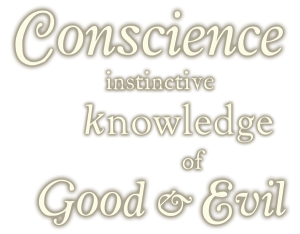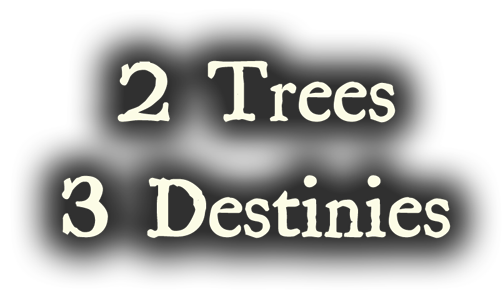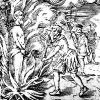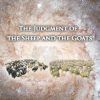 YOUR Destiny
YOUR Destiny
Who makes the choice?
Destiny is like destination. It is the place where a person arrives at the end of a journey. When you walk towards a specific destination, each step you take brings you closer to where you are going. The further you go, the more set you are in that direction.
In the same way, each human being walks towards his own eternal destination. How a person lives his life now, determines where he is headed.1Romans 2:6-8
Every person will go to one of The Three Eternal Destinies2Revelation 22:11 God the Creator does not decide for you, as though it were a matter of fate. No! You choose your own eternal destiny by the moral standards you live by – either good or evil.3Eccles 3:17; 12:13,14 Your actions reflect the choices you make in life. Those outward deeds tell you which path you are on. If you continue to walk in that same direction long enough you will eventually reach your destination.
Every person has a conscience which tells them instinctively what is right and what is wrong.4Romans 2:14-16 The deeds that we do, the things that we think – we must give account for.5Revelation 20:12-15 Destiny has accountability attached to it. That is why every man is without excuse for what he does.6Romans 1:19,20
A person’s eternal destiny is set in direct relation to how they obey or disobey their conscience. It is so wonderful that God, our Creator, has left us the freedom to choose for ourselves what our ultimate eternal destiny will be.
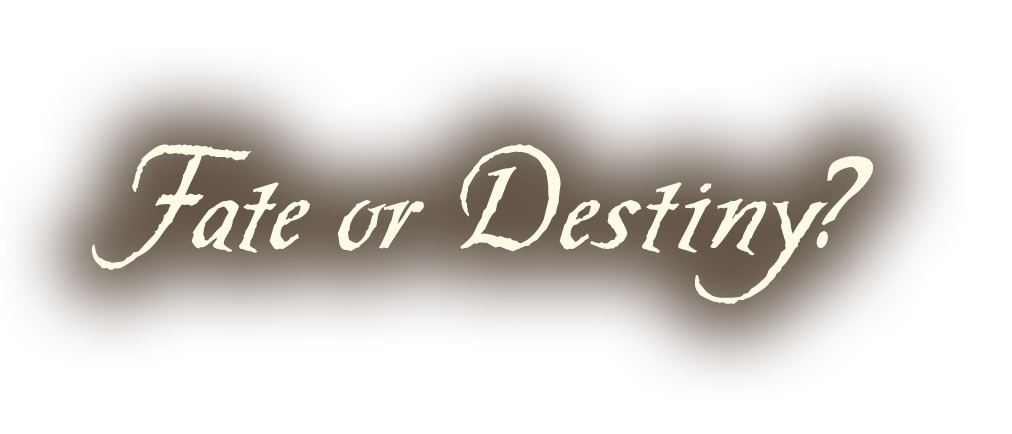
There is a difference between fate and destiny. It is mankind’s fate to die once. Fate, like death, is unavoidable. It is an appointment which every person must keep.7Heb 9:27
You can’t change fate,
but you can change your destiny.
It is all according to your ability to hear and respond to the “inner voice” of your conscience.
The true God is not indiscriminate in His judgments, but distinguishes between the Filthy and Unjust, the Righteous, and the Holy.
We can clearly see that there are three eternal destinies for mankind, not just two as Christianity has mistakenly taught us.
The simple truth is that God recognizes another category of people: those who are righteous according to the instinctive knowledge of the truth which is inherent within their conscience.
Perhaps you are not used to thinking in terms of three eternal destinies, yet the truth of these words resonates with your conscience. How could a righteous and just God cast righteous and just people into the Lake of Fire?
Will He condemn men and women to eternal torment who suffer to keep a good conscience? Will He treat them the same as the cowardly, self-seeking, greedy, deceitful, and sexually filthy people who defile and corrupt themselves and others?
What is the point of having a conscience anyway if God does not reward those who suffer to maintain it?

So who can you blame when you arrive at your eternal destination? It is ultimately up to you to decide what your eternal destiny will be.
The Creator will not force you to do what is right. Since you have the knowledge of right and wrong at work within yourself, you are totally accountable for your deeds…
Fallen man must live by the knowledge of good and evil…
He cannot stretch out his hand to eat from the Tree of Life, for he is under the sentence of death for his sin. Only if someone could take his place in death could he gain access to the Tree of Life.
Yahshua,* the Son of God, took our judgment upon Himself in death and provided the way back to the Tree of Life. He is the Tree of Life. All who utterly surrender their own lives in order to live only for Him will be able to eat from the Tree of Life. They will be a set-apart people, just as the Tree of Life was set apart from the Tree of the Knowledge of Good and Evil. They are His holy people who will know Messiah intimately in a relationship that endures for eternity.
You can become one of His holy people if you want to…*
“The Tree of the Knowledge of Good and Evil and The Tree of Life.”
These two trees foretold the three eternal destinies of mankind…9Revelation 22:11
Scriptural References and Other Footnotes

